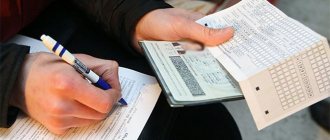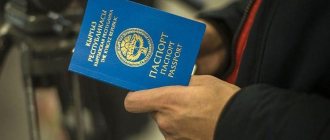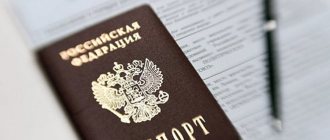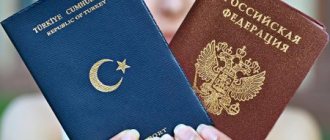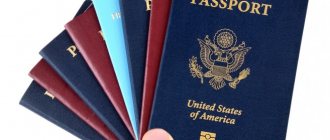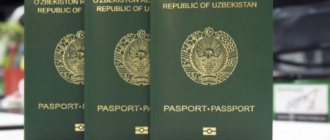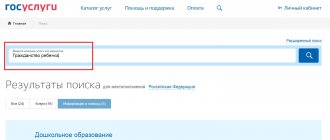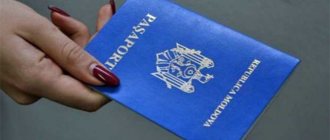In order for a foreign citizen to become a Russian citizen, he is first of all obliged to confirm the availability of work and individual financial solvency. One of the documents that positively characterizes a person in this regard is considered to be a certificate of income for obtaining citizenship.
A certificate that will confirm the financial sufficiency of a foreigner is submitted simultaneously with the main package of documents for citizenship.
Find out how to obtain Russian citizenship and fill out the application correctly on our website.
What is it and where can I get it?
This document means a certificate confirming that the holder has a stable financial income received as a result of legal activities: employment, entrepreneurship or other methods not prohibited by law.
In a situation where a certificate is needed to obtain citizenship of the Russian Federation, it serves not only as proof of the citizen’s solvency. In particular, legal income characterizes a person as a positive subject from the point of view of current legislation.
Thus, the applicant is considered as a person not inclined to commit a crime with the aim of obtaining financial gain through illegal means, and therefore violating the regime of stay of foreign citizens in the country.
Find out how to obtain Russian citizenship for a citizen of Kazakhstan, Georgia and Ukraine on our website.
Learn about simplifying the process of obtaining Russian citizenship from the video below.
A non-resident of the Russian Federation has the right to obtain a certificate of income to obtain citizenship from the employer’s accounting department (if he works officially). If a foreigner is engaged in business, a document received from the tax authority can be used as confirmation.
Where to submit an income certificate
The legislation of the Russian Federation provides for two options for submitting documents for citizenship:
- Through a personal visit to the territorial body of the Ministry of Internal Affairs of Russia located in the area of actual residence of the foreign person.
- By contacting the embassy or diplomatic mission of the Russian Federation for citizens who do not reside in Russia permanently.
You can check your readiness for citizenship on the Official Portal of the Main Directorate for Migration of the Ministry of Internal Affairs of Russia
Important! A certificate that will confirm the financial sufficiency of a foreigner is submitted simultaneously with the main package of documents for citizenship.
Who can be exempt from this procedure?
The conditions relating to foreign persons applying for Russian citizenship are officially prescribed in the Federal Law “On Citizenship of the Russian Federation”, Articles 13, 14.
Admission to Russian citizenship of foreign and stateless citizens occurs in a general (Article 13 of the Law) or simplified procedure (Article 14 of the same Law).
Find out how to obtain Russian citizenship for a citizen of Belarus and Tajikistan here.
Latest changes in legislation
On April 17, 2021, Federal Law No. 134 was adopted by the State Duma and approved by the Council of Federation on amendments to Federal Law No. 62, which significantly simplifies the procedure for obtaining citizenship: https://publication.pravo.gov.ru/Document/View/0001202004240038?index=0&rangeSize= 1. Most categories of applicants now do not have to renounce their previous citizenship, comply with the condition of a 5-year period of residence, submit certificates of the source and amount of income, and also attend the Commission on Russian Speakers. The amendments entered into force on July 23, 2020.
List of persons exempt from submitting a certificate
Despite the fact that the obligation of foreign citizens to submit income certificates is approved at the legislative level, for most people this norm has been abolished. These categories of foreign citizens are listed in Article 14 of Federal Law-62:
- stateless persons who had citizenship of the former USSR, who lived and are living in states that were part of the USSR, and did not receive citizenship of these states.
- were born on the territory of the RSFSR and had citizenship of the former USSR;
- have been married for at least three years to a Russian citizen living in Russia;
- are disabled and have a capable son or daughter who has reached the age of eighteen and is a citizen of the Russian Federation;
- have a child who is a citizen of Russia - if the other parent of this child, who is a citizen of Russia, has died, or has been declared missing, incompetent or limited in legal capacity, deprived of parental rights or limited in parental rights by a court decision that has entered into legal force ;
- have a son or daughter who has reached the age of eighteen years, who are citizens and by a court decision that has entered into legal force, recognized as incompetent or limited in legal capacity - if the other parent of these Russian citizens, who is a citizen of Russia, has died or by a court decision that has entered into force legal force, declared missing, incompetent or limited in legal capacity, deprived of parental rights or limited in parental rights;
- received a diploma of professional education after July 1, 2002 in Russia and have been working for at least a year, a prerequisite is the calculation of insurance contributions to the Pension Fund of Russia;
- are individual entrepreneurs and have been carrying out business activities in Russia continuously for at least three years in the types of economic activities established by the Russian Government. In this case, the amount of taxes and fees must be at least 1 million rubles;
- are investors for three years in the types of economic activities established by the Russian Government, and the amount of taxes and fees must be at least 6 million rubles;
- during the year they work in a specialty included in the List of Qualified Specialists;
- have at least one parent with Russian citizenship living in Russia;
- are citizens of the Republic of Belarus, the Republic of Kazakhstan, the Republic of Moldova or Ukraine;
- have a certificate of recognition as native speakers of the Russian language;
- a temporarily or permanently residing citizen is married to a Russian citizen living on the territory of Russia and has common children in this marriage;
- disabled foreign citizens and stateless persons who arrived in Russia before July 1, 2002 and received a temporary residence permit or residence permit in Russia;
- Resettlement Program participants;
- category of citizens determined by the President of Russia;
- veterans of the Great Patriotic War who had citizenship of the former USSR and living in the Russian Federation;
- minor children and incompetent persons who are foreign citizens who are admitted to Russian citizenship by their parents or guardians.
You will learn even more useful information about simplifying the process of obtaining citizenship from the video below.
How to obtain Russian citizenship under the quadripartite agreement
- be born/live on the territory of Russia and have citizenship of one of the four former Soviet republics and, at the same time, the USSR, obtained before December 21, 1991;
- have close relatives who are Russian citizens. Close relatives include spouses, parents, children, including adopted children, grandparents, grandchildren, brothers and sisters.
- birth certificate and national passport (if available);
- document confirming residence in the Russian Federation. This may be a temporary residence permit (TRP) for a child or a residence permit/TRP for one of the parents, with information about the child included;
- written consent of a child over 14 years of age with a notarized signature;
- a copy of the detachable part of the notification form certifying migration registration (if it was done at the place of stay).
We recommend reading: Benefits and payments for large families in 2021 in Bryansk
Amount of income
The amount of income required for an applicant is not specified by law. According to the practice of recent years, the amount of earnings of a foreigner should be no less than the subsistence minimum. If documents are submitted in relation to several family members with dependents (minor children), then the level of earnings of the parents must cover the amount established at the legislative level for all family members in total.
Good to know. The size of the subsistence level is changing: on average in Russia in the 1st quarter of 2021, its size for the working-age population was 10,753 rubles, for minors - 10,585. In the 1st quarter of 2021 - 10,843, for children - 10,721. In each subject of Russia, regional authorities establish its own subsistence level for the population.
As for individual savings, the minimum amount, confirmed by an extract from a banking institution, must be at least 20 times the subsistence level. The amount of monthly interest on the deposit must exceed the previously specified minimum subsistence level.
A document confirming the existence of a legal source of livelihood
1) I assume that any income document (work certificate, account statement) may not be higher than the subsistence level, for example, about 15,000 rubles. per month, not 40 tr. As required by the Federal Migration Service, is it possible to refer to the amount of life lived? minimum to justify the Federal Migration Service to reduce this amount?
We recommend reading: How to write a sample reference for a kindergarten teacher from a parent
Registration of Russian citizenship is a responsible process, because it requires collecting a whole folder of documents, including certificates confirming the source of livelihood and an application for Russian citizenship. In the process of obtaining status, a person has a lot of questions about how to fill out the application correctly, where to submit papers, etc. It is worth understanding these issues in more detail.
What can serve as proof of income?
When a foreign citizen requires proof of income to obtain citizenship, Russian legislation does not limit applicants in presenting document options. To prove his financial sufficiency, a non-resident of the Russian Federation has the right to present one of the following documents:
- A certificate received from the employer’s accounting department confirming the fact that an employment agreement has been concluded between the citizen and the company.
Sample income certificate
- A certificate reflecting the amount of the scholarship.
- Papers confirming receipt and amount of severance pay issued upon expiration of the contract between employer and employee.
- A document confirming payment for the maintenance of minor children or for the care of incapacitated relatives.
- Papers confirming other social payments or benefits (pensions).
- An extract from a banking institution confirming receipt of monthly dividends from deposits in securities, precious metals or other valuables.
- Information about legal income received from the tax authorities (declaration).
- Documents confirming the receipt of an inheritance or an object of gift, which allows us to speak about the financial solvency of the applicant.
- Papers confirming the applicant’s investment of funds in the authorized capital of one of the Russian enterprises. The amount must be at least 10 million rubles.
- Certificate of conclusion of an agreement for the provision of financial contracting services.
Important! If a citizen has several sources of income, it is recommended to indicate all. This will increase the chances of getting a positive result.
2-NDFL
A foreigner can confirm income for citizenship in 2021 by presenting a 2-NDFL certificate. The document will reflect information about the employee’s legal earnings and the amount of taxes withheld from his income.
Sample of personal income tax certificate 2
The certificate is issued for a separate segment of a citizen’s labor activity. Most often it covers the last 12 months of work. Prepared in the employer's accounting department. Along with it, several more documents are attached:
- An employment contract (agreement) confirming that a foreigner works in a company that operates within the borders of the Russian Federation.
- A similar document issued in relation to the spouse, as well as the applicant applying for Russian citizenship.
Good to know. A 2-NDFL certificate is issued by the accounting department of the employer’s company upon written request from the employee within three working days after the application.
3-NDFL
The 3-NDFL certificate reflects reports on the holder’s taxes paid. Formally, it is called a tax return. For citizens officially working at enterprises within the borders of Russia and receiving white wages, the amount of income tax in the accounting department is calculated automatically. Thus, there is no need to fill out the 3-NDFL certificate yourself.
Tax return for personal income tax (KND-1151020). Form 3-NDFL
If a foreign citizen received other income during the reporting period that requires official confirmation, it will be advisable to submit such a certificate. This is necessary in cases:
- Sales of real estate: land, apartments, houses, cottages, other objects.
- Sales of other property, the financial value of which may be significant: a car, motorcycle, jewelry, other items of high value.
- Receiving dividends or selling them.
- Other sources that generated income and require payment of income tax: winning a lottery, receiving an expensive gift, registering copyright, etc.
- Income received from rented real estate.
- Ownership of a company, individual entrepreneur, regularly generating income.
- Lawyer or notary activity.
A mandatory condition for submitting a 3-NDFL certificate is the situation when the applicant applied to the tax authority with a question about income tax refund. Russian legislation allows the use of this opportunity in several cases:
- Purchases of real estate: apartments, houses, land plots in individual housing construction status.
- Payment of a mortgage loan aimed at purchasing residential real estate.
- Paid education (your own or a family member, close relative).
- Paid treatment (your own or a family member, close relative).
- Voluntary contributions to the Pension Fund of the Russian Federation.
- Charitable deductions in cash.
Important! The mandatory submission of a 3-NDFL certificate applies to non-residents of the country who have income outside of Russia.


